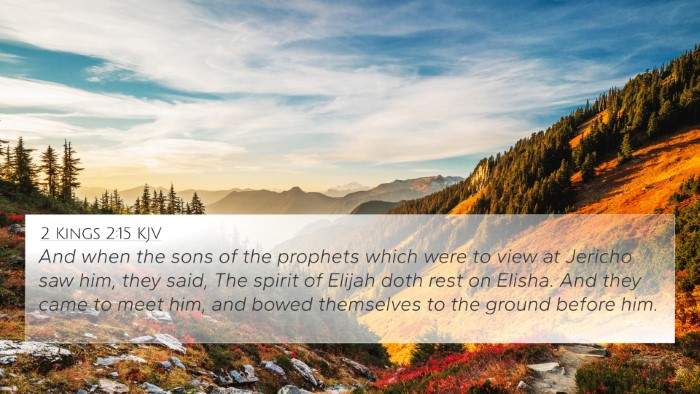Understanding 1 Samuel 25:9
1 Samuel 25:9 states: "When David’s men came, they said all these words to Nabal in the name of David. And then they waited." This verse presents various insights into the narrative of David and Nabal, establishing a foundation for deeper exploration into biblical themes such as honor, foolishness, and the foreshadowing of divine justice.
Context of 1 Samuel 25
This chapter narrates an encounter between David and Nabal, a wealthy but foolish man. It is set against the larger backdrop of David's journey as he flees from King Saul, and it illustrates the moral and social dynamics of his time.
Key Themes and Meanings
- Respect and Deference: The manner in which David's men approach Nabal showcases their respect for authority and social order.
- Foolishness vs. Wisdom: Nabal’s response to David's request epitomizes foolishness, as he lacks the wisdom to recognize David's rightful claim and honor as the anointed future king.
- Consequences of Actions: Nabal’s rejection of David and his men leads to significant repercussions, highlighting the biblical principle of reaping what one sows.
Inter-Biblical Connections
This verse can be cross-referenced with several other scriptures that highlight similar themes:
- Proverbs 15:2 - "The tongue of the wise uses knowledge rightly, but the mouth of fools pours forth foolishness." This parallels Nabal's foolish speech.
- 1 Samuel 26:18 - "And he said, 'Why does my lord thus pursue his servant? For what have I done? Or what evil is in my hand?'" This reflective questioning contrasts David's wisdom with Nabal's folly.
- Proverbs 6:16-19 - A list of things the Lord hates, including a proud look and a lying tongue, applicable to Nabal's character.
- Psalm 14:1 - "The fool says in his heart, 'There is no God.'" Reflecting on Nabal’s behavior showcases his disconnect from recognizing divine authority.
- Galatians 6:7 - "Do not be deceived: God is not mocked, for whatever one sows, that will he also reap." This highlights the principle evident in Nabal’s circumstances.
- Matthew 5:7 - "Blessed are the merciful, for they shall receive mercy." David's plea for mercy contrasts with Nabal’s lack of compassion.
- James 4:6 - "But he gives more grace. Therefore it says, 'God opposes the proud, but gives grace to the humble.'" Nabal’s pride leads to his downfall.
Comparative Bible Verse Analysis
When we conduct a comparative analysis of 1 Samuel 25:9 with broader narratives, we observe that David's respect for Nabal, despite his subsequent actions, serves as a critical lesson in humility and respect for authority, which is often mirrored throughout the scriptures. This encounter lays a template for understanding how matters of honor can turn tragic or redemptive in biblical texts.
Using Bible Cross-References
To engage deeply with scriptures, readers can utilize various tools for Bible cross-referencing:
- Bible Concordance: A listing of words found in the Bible, helping to locate where specific terms are used across the text.
- Bible Cross-Reference Guide: Guides that outline related scriptures for thematic exploration.
- Cross-Reference Bible Study: Utilizing study methods that emphasize connections between verses enhances understanding.
- Bible Reference Resources: Materials that offer insights into biblical narratives in cross-references.
Conclusion
In summary, 1 Samuel 25:9 invites readers to consider the implications of Nabal's foolishness and David's moral character. The connections to other scriptures enrich our understanding of biblical principles such as respect, humility, and the eventual outcome of one's actions. By employing cross-referencing tools, we can uncover deeper layers of meaning within the interconnected stories of the Scriptures.





